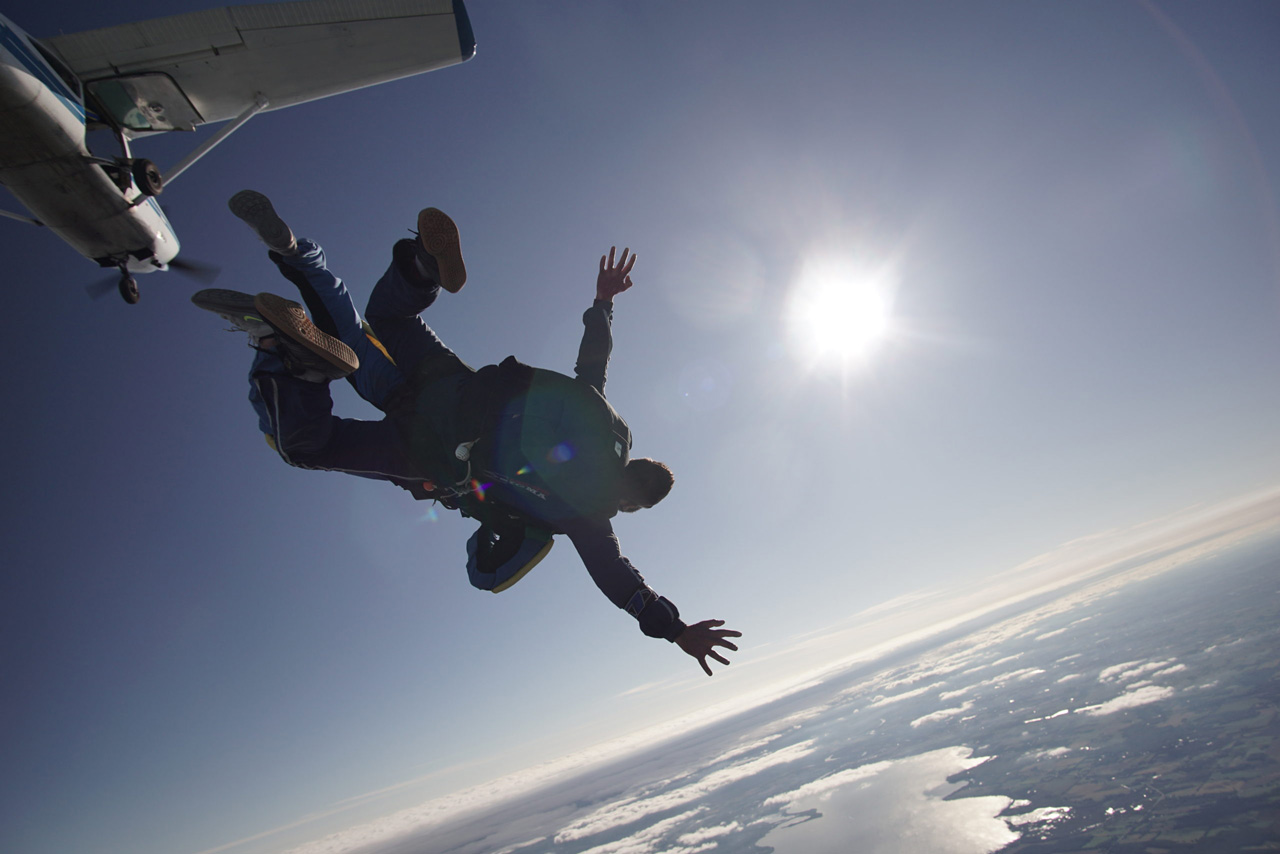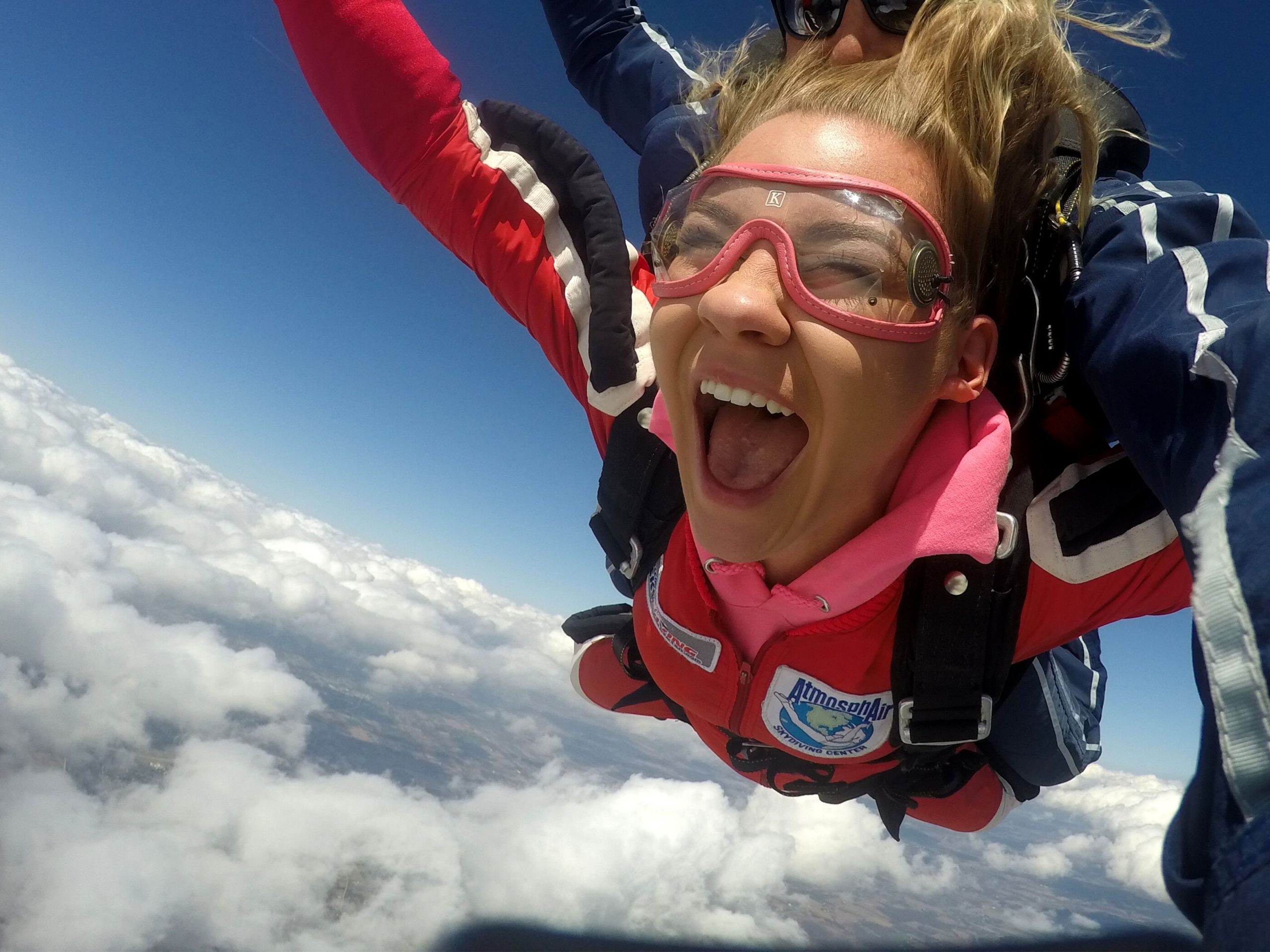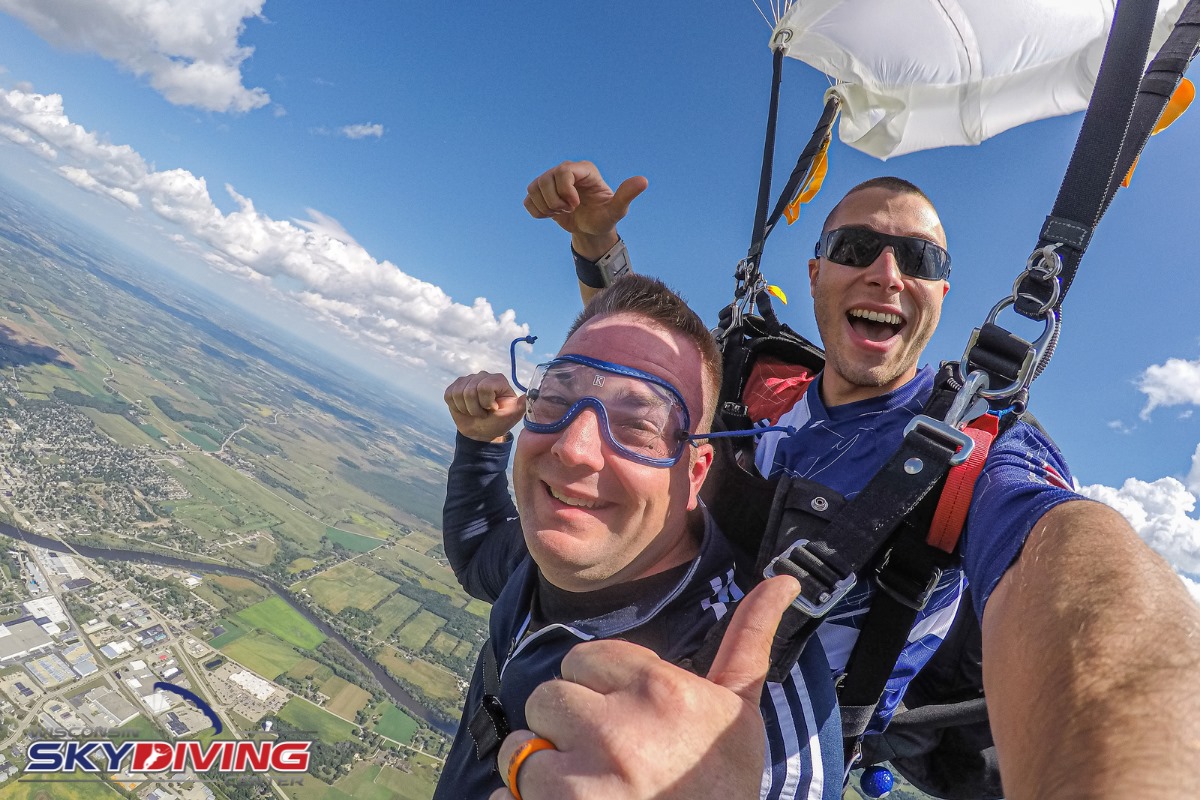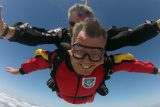Can You Skydive with a Disability?
Skydiving Safety
Posted by: Wisconsin Skydiving Center 1 year ago
When people think of extreme sports, physicality immediately comes to mind – people pushing their bodies to the limit for the ultimate rush. But what about the millions of people who live with disabilities? You may be surprised to learn that skydiving with a disability is not only possible, but it can also be an amazing and freeing experience for people who experience various types of restrictions.

At Wisconsin Skydiving Center, we’re committed to sharing the out-of-this-world amazing experience that is skydiving with as many people as we can. There are numerous ways skydiving can be made accessible for people with differing abilities. Over the years we’ve made a number of simple, as well as creative, accommodations to help make the dream of flight possible for many people who thought it would never be a reality for them.
Sure, there are some skydiving medical restrictions that are a no-go, but the “yes” list is quite a bit longer than the “no” list. Read on to learn about all the ways people of differing abilities can enjoy tandem skydiving.
Skydiving for Wheelchair Users
Can you skydive if you’re in a wheelchair? It’s entirely possible for those who use wheelchairs to go skydiving. (Check out this video of Lonnie Bissonnette making an epic solo jump with his wheelchair!) Of course, each case is assessed on an individual basis to ensure everyone’s safety.
The most important job a student has on their tandem skydive is to maintain an arch position. The arch allows both the student and instructor to remain stable while they fall with their bellies to the earth. Think of it like being a banana, with the person’s hips at the lowest point. As long as the person making the tandem skydive is able to arch and has some mobility in their extremities, there’s a good chance that they’ll be good to go. The main concern is safety. After that’s taken care of, chances are the rest can be worked around.
There have even been advances in equipment that make it safer and easier for people who use wheelchairs to skydive. Different modifiers that attach to the tandem harness can help both the instructor and the student accommodate a wide range of bodies and abilities. However, every jump involves risk, and adding additional elements to a skydive increases that risk. It’s important to consult with a medical professional before deciding if skydiving is right for you.

Skydiving with a Visual Impairment
Skydiving is all about the views, right? Wrong! People with visual impairment are fully capable of making a tandem skydive, and can even appreciate it in ways that those with sight aren’t able to.
There is so much to each and every skydive that transcends any of the individual senses. The excitement of stepping out of the plane door, the wind on your face, the feeling of gliding around under canopy. Adrenaline! Your body goes through as much physical stimulation on a skydive as all of your senses can take in, combined.
Additionally, all of the navigation required to safely execute and land a tandem skydive can be done by the instructor. Just listen to your tandem instructor, and there’s no need to worry about that part of the jump!
Skydiving with a Hearing Impairment
One of the last senses you’d expect to need while skydiving is hearing. After all, what can you really hear when 120 mph winds are whooshing past your ears? Surprisingly, hearing can be an important aspect of jumping out of an airplane, especially if you’re a student.
You’re not just along for the ride on your jump, even on a tandem. As an active participant in the skydiving procedures, being able to communicate with your instructor during all phases of the skydive is important. Sure, you can’t speak to each other in the white noise of freefall, but on the ride up, while under canopy, and during landing, it’s very easy to communicate by simply talking.
Luckily, the spoken word isn’t the only way skydivers have learned to communicate. The inability to speak in freefall has resulted in the development of standard hand signals to convey certain words. These signals could easily be expanded to include the rest of the skydive. As long as you can demonstrate on the ground that you can understand and communicate with your instructor by means other than speaking, there should be no problem getting you into the air.

Other Considerations
A common question people ask about making a tandem jump is, “How much can you weigh and still skydive?” At Skydive Wisconsin, our weight limit for tandem students is 260 lbs. The reason for weight limits comes down to a matter of safety. The equipment used in tandem skydiving is only able to carry a maximum of 500 lbs, and that includes the student, the instructor, and any gear involved in the jump.
The fit of the tandem harness is also crucial to student safety. Someone who weighs 250 lbs and is 6′ 3″ is going to have a different body type than a 5′ person of the same weight. It’s important that the gear is able to work properly for the body type of the person wearing it.
Another question people often ask is, “Can you skydive if you have a heart condition?” Because of all of the adrenaline involved in jumping out of an airplane, a number of heart issues end up on the “no” list. High blood pressure and heart disease pose additional risks when it comes to skydiving. It is possible to skydive with certain heart conditions, but you should absolutely check with your healthcare provider before deciding if it’s safe to make a jump.
Stoked about accessible skydiving?! Skydiving is for everybody and for EVERY BODY, and if you think you think you can get in the air, you probably can! Give us a call to talk through your specific abilities and figure out what’s best for you. Blue skies!
Categories:
You May Be Interested In:

Can Kids Go Skydiving?
1 month ago by Wisconsin Skydiving Center

How Dangerous Is Skydiving?
3 months ago by Wisconsin Skydiving Center

What’s a Skydiving AAD & Why It Matters
1 year ago by Wisconsin Skydiving Center

How Much Experience Do Skydiving Instructors Have?
1 year ago by Wisconsin Skydiving Center